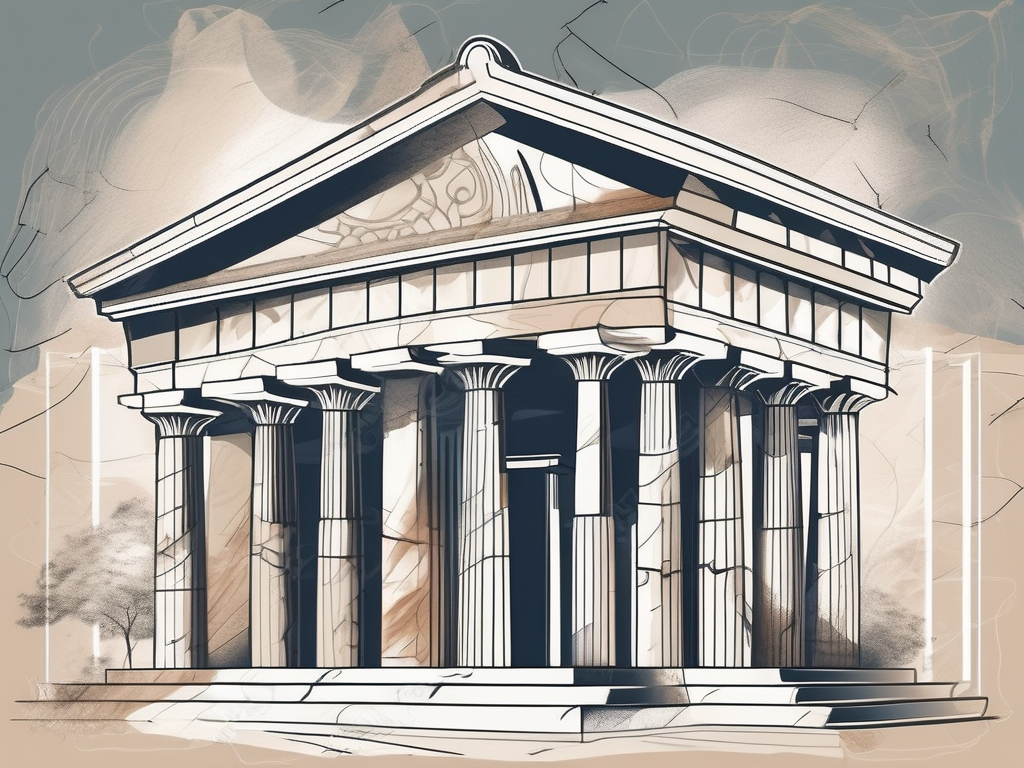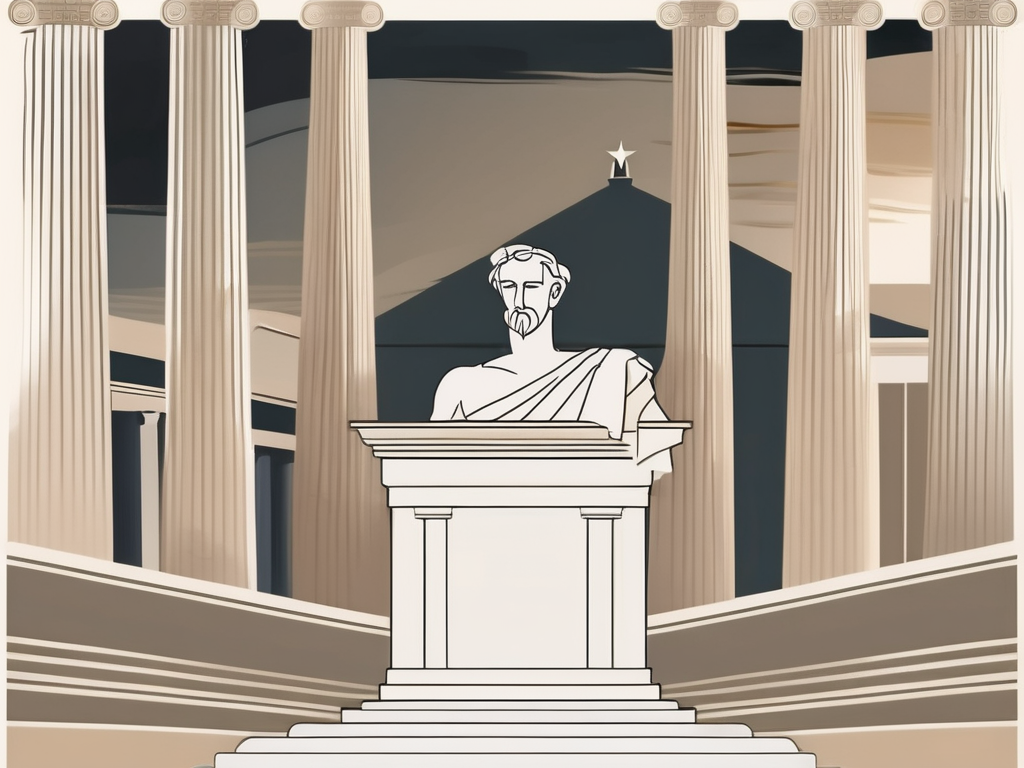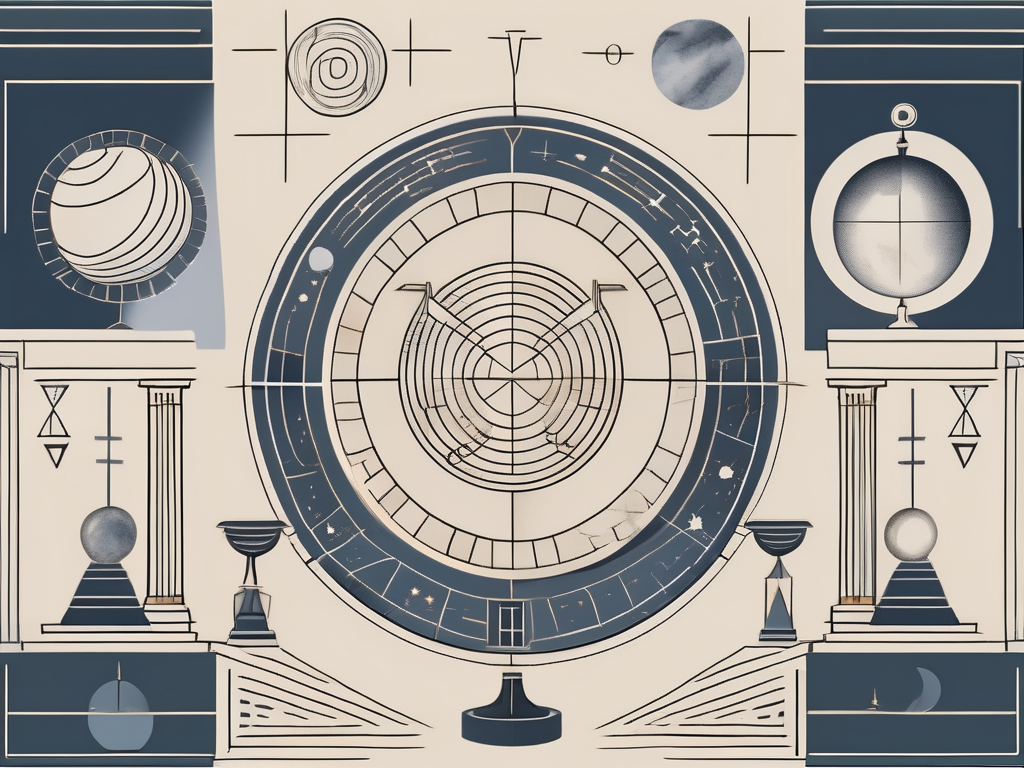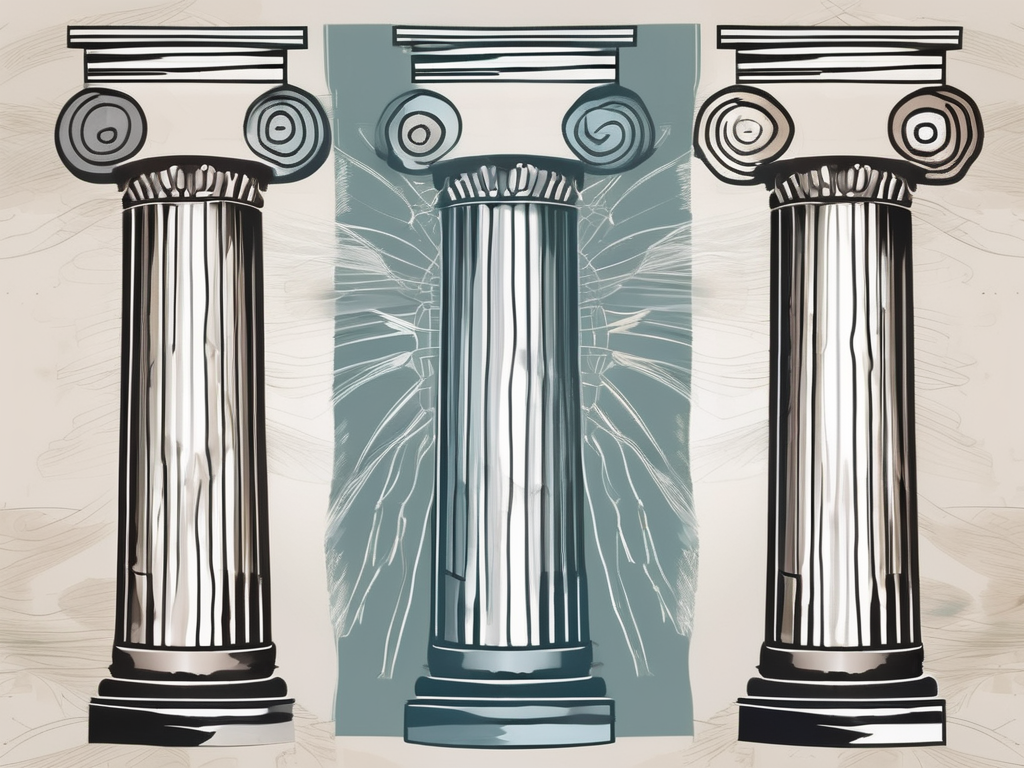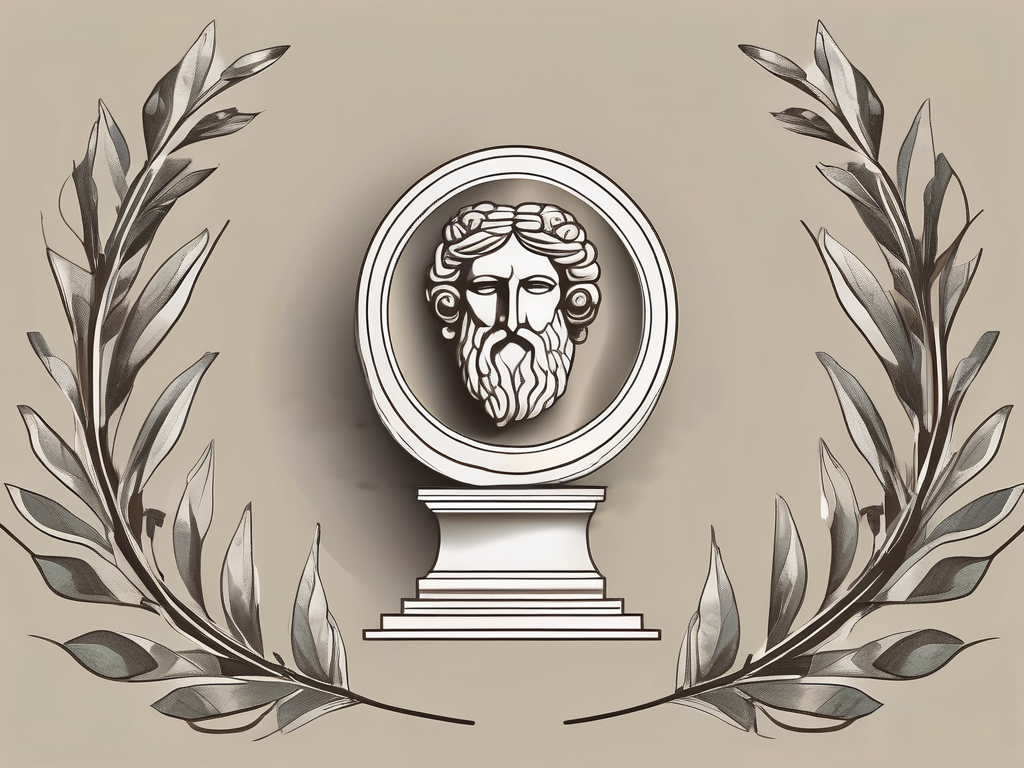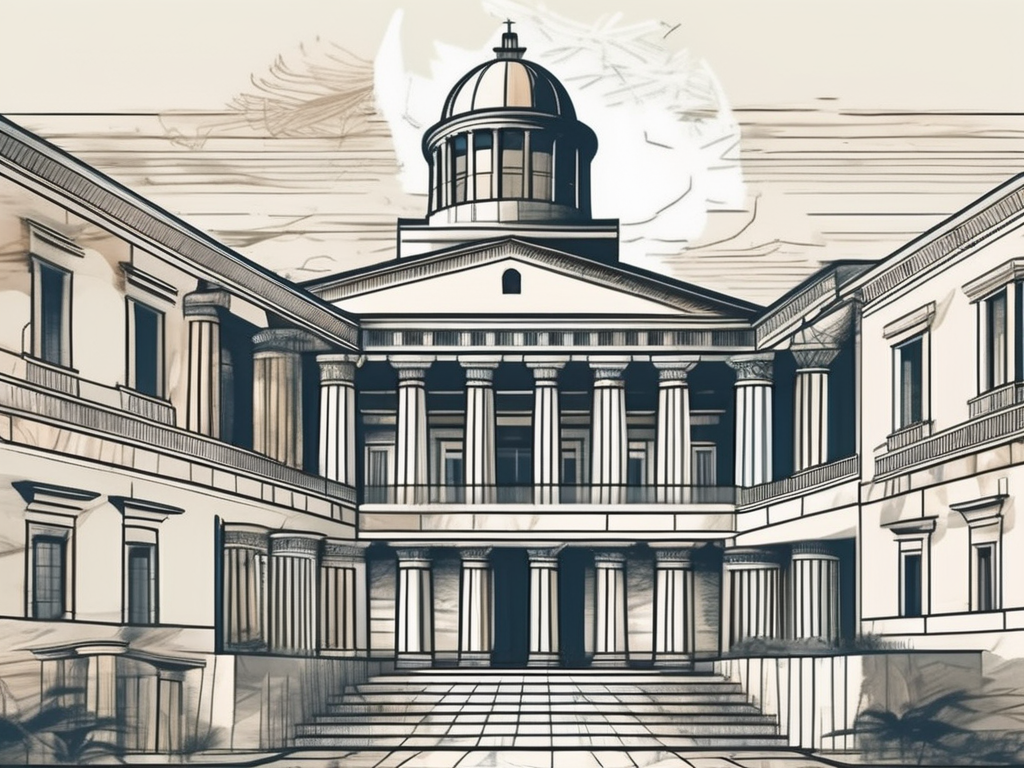Proclus was a prominent Greek philosopher whose ideas and teachings had a profound impact on the development of Western philosophy. Born in Constantinople in the year 412 AD, Proclus was raised in a family with a rich intellectual background. From a young age, he displayed a remarkable aptitude for learning and quickly became known for his outstanding academic pursuits.Early Life and Education of Proclus
Proclus came from a distinguished family known for their deep philosophical roots. His father was a high-ranking official in the Byzantine government, which provided Proclus with access to a vast library and a network of influential thinkers. Under the guidance of his family, Proclus embarked on a rigorous education that encompassed a wide range of disciplines, including mathematics, astronomy, and philosophy.
Birth and Family Background
Proclus’s birth took place in Constantinople, the capital of the Byzantine Empire. His family had a strong philosophical tradition, and his upbringing was deeply influenced by the intellectual atmosphere that surrounded him. Growing up, Proclus gained exposure to various philosophical schools of thought, which helped shape his own unique perspective.
Academic Pursuits and Influences
During his early years, Proclus pursued rigorous studies in diverse fields, discovering his passion for philosophy. Influenced by his family’s library and the works of many renowned scholars of his time, Proclus delved deeply into the teachings of Plato and Aristotle. He also explored the philosophical ideas of earlier scholars, such as Parmenides and Plotinus, which would later become foundational to his own philosophical system.
Proclus’s Philosophical Teachings
Proclus, a prominent philosopher of late antiquity, developed a comprehensive philosophical system known as Neoplatonism. This system aimed to reconcile the teachings of Plato with the later developments in metaphysics and theology, providing a framework for understanding the nature of reality and the divine.
Neoplatonism, as expounded by Proclus, emphasized the existence of a transcendent reality beyond the material world. It posited that there is a hierarchical structure of existence, with various levels interconnected and emanating from the ultimate source of all being, the One.
Proclus’s philosophical system sought to explore the relationship between the One, the Intellect, and the World Soul. According to his teachings, the One, being the ultimate source of all existence, gives rise to the Intellect. The Intellect, in turn, gives rise to the World Soul, which is responsible for the animation and order of the physical world.
Neoplatonism and Its Principles
One of the fundamental principles of Proclus’s Neoplatonism is the concept of hierarchical levels of reality. This concept suggests that everything in the universe is interconnected and part of a grand cosmic order. Each level of reality, from the divine to the physical, is connected through a series of emanations, with the One being the highest and most transcendent.
Proclus’s Neoplatonic philosophy also placed great importance on the idea of contemplation and the pursuit of knowledge. He believed that through the contemplation of the eternal truths and the divine, individuals could attain a higher level of understanding and ultimately achieve union with the divine.
Proclus’s Unique Interpretations
While Proclus drew heavily from the ideas of previous philosophers, he also introduced his own unique interpretations and insights into Neoplatonism. His philosophical system incorporated elements of mysticism, emphasizing the mystical experience as a means of connecting with the divine.
Proclus’s deep sense of reverence for the divine is evident in his teachings. He believed that the ultimate goal of human existence was not only to understand the nature of reality but also to achieve a profound union with the divine. This union, according to Proclus, would bring about a state of enlightenment and spiritual fulfillment.
In addition to his metaphysical and theological teachings, Proclus also made significant contributions to other areas of philosophy, including mathematics and ethics. He believed that mathematics was not only a means of understanding the physical world but also a way to access higher truths and principles.
Proclus’s philosophical teachings had a lasting impact on the development of Western philosophy. His ideas influenced subsequent philosophers, such as Plotinus and later Renaissance thinkers, and his emphasis on the interconnectedness of all levels of reality continues to resonate in contemporary philosophical discussions.
Major Works and Contributions
Proclus, a renowned philosopher of the late ancient period, left behind a vast collection of writings that spanned various disciplines, leaving an indelible mark on the intellectual landscape of his time. His works encompassed a wide range of topics, including metaphysics, theology, and mathematics, showcasing his versatile intellect and insatiable curiosity.
Among his extensive body of writing, two works stand out as particularly influential, shedding light on Proclus’s profound philosophical insights and serving as invaluable sources of knowledge for future generations of thinkers.
The Elements of Theology
In “The Elements of Theology,” Proclus embarked on a monumental endeavor, presenting a systematic exploration of his philosophical system. This magnum opus offered a comprehensive understanding of his Neoplatonic principles, delving into the intricacies of existence and providing a roadmap for aspiring philosophers to navigate the profound layers of reality.
Proclus’s treatise on theology not only provided a theoretical framework but also delved into practical applications, offering guidance on the attainment of spiritual enlightenment and the union of the soul with the divine. It became a cornerstone of Neoplatonic thought, captivating the minds of scholars and philosophers for centuries to come.
Commentary on Plato’s “Timaeus”
Proclus’s commentary on Plato’s “Timaeus” marked a significant milestone in the field of philosophy. In this groundbreaking work, Proclus undertook a meticulous analysis and interpretation of Plato’s seminal dialogue, unraveling its profound implications for cosmology, the creation of the universe, and the nature of the soul.
Through his commentary, Proclus shed light on Plato’s enigmatic ideas, elucidating the intricate workings of the physical and metaphysical realms. He explored the concept of the Demiurge, the divine craftsman responsible for the creation of the cosmos, and expounded upon the role of the soul in the grand tapestry of existence.
Proclus’s commentary on “Timaeus” not only deepened the understanding of Plato’s philosophy but also opened new avenues of thought, inspiring subsequent generations of philosophers to explore the profound mysteries of the universe.
Proclus’s contributions to philosophy extended far beyond these two seminal works. His writings encompassed a vast array of subjects, including mathematics, astronomy, and theology. His mathematical treatises explored geometric principles and mathematical theorems, while his theological works delved into the nature of the divine and the relationship between the human and the divine.
Proclus’s legacy as a philosopher and writer continues to resonate in the realms of academia and intellectual discourse. His works remain a testament to the enduring power of human inquiry and the pursuit of knowledge, inspiring generations of thinkers to explore the depths of existence and unravel the mysteries of the universe.
Impact on Later Philosophical Thought
Proclus’s philosophical ideas wielded a significant influence on subsequent philosophical developments, extending beyond his lifetime. His teachings resonated with thinkers in both the Byzantine Empire and the Islamic world, fostering the growth of philosophical thought in these regions.
Influence on Byzantine and Islamic Philosophy
In the Byzantine Empire, Proclus’s ideas became highly regarded, particularly during the flourishing intellectual period of the fifth and sixth centuries. Scholars like John Philoponus drew inspiration from his works, contributing to an ongoing dialogue and exploration of philosophical ideas.
Proclus’s teachings were not only influential within the Byzantine Empire but also had a profound impact on Islamic philosophy. During the translation movement of the ninth through the twelfth centuries, his writings were eagerly embraced and served as a valuable source of knowledge. Islamic scholars recognized the depth and richness of Proclus’s Neoplatonic ideas, and they integrated them into their own philosophical traditions.
One of the most prominent philosophers influenced by Proclus in the Islamic world was Al-Farabi. Al-Farabi, often referred to as the “Second Teacher” (after Aristotle), synthesized Proclus’s ideas with Islamic philosophy, creating a unique blend of thought that shaped the development of Islamic philosophy for centuries to come. Similarly, Avicenna, another renowned Islamic philosopher, drew heavily from Proclus’s works, incorporating Neoplatonic concepts into his own philosophical system.
Proclus’s Legacy in Western Philosophy
In addition to his influence on Byzantine and Islamic philosophy, Proclus played a crucial role in shaping Western philosophical traditions. His ideas were transmitted to the Latin West through Arabic translations, and they strongly influenced later thinkers during the Renaissance.
Thomas Aquinas, one of the most influential theologians and philosophers in Western history, was deeply influenced by Proclus’s ideas. Aquinas incorporated Proclus’s Neoplatonic concepts into his own philosophical framework, particularly in his exploration of metaphysics and the nature of God. Proclus’s emphasis on the hierarchical structure of reality and the existence of a divine intellect resonated with Aquinas’s own theological and philosophical inquiries.
Another notable figure influenced by Proclus was Marsilio Ficino, an Italian philosopher during the Renaissance. Ficino was a key figure in the revival of Neoplatonism in Western Europe, and he translated and commented on Proclus’s works. Ficino’s efforts to reintroduce Proclus’s ideas to the Western intellectual tradition helped shape the philosophical landscape of the Renaissance and beyond.
Controversies and Criticisms
Although Proclus’s ideas enjoyed widespread acceptance and admiration, they were not without their fair share of controversies and criticisms. Some of his concepts were subject to intense debates and scrutiny by later philosophers, challenging the validity and accuracy of his theories.
Debates Around Proclus’s Ideas
One area of contention was Proclus’s belief in the existence of a hierarchical structure of reality. Critics argued that this notion contributed to a rigid worldview that limited the individual’s agency and potential for personal growth. Additionally, the intricate metaphysical framework of Neoplatonism drew skepticism from philosophers who favored more empirical approaches to knowledge.
Modern Perspectives on Proclus’s Philosophy
In modern times, a renewed interest in Proclus and Neoplatonism has emerged. Contemporary philosophers approach Proclus’s ideas with a critical lens, appreciating his contributions while also evaluating them in light of modern advancements in science and philosophy. Proclus’s philosophy continues to inspire ongoing discussions and interpretive debates within academic circles.
In conclusion, Proclus was a figure of immense importance in the history of philosophy. Through his philosophical teachings, major works, and lasting influence, Proclus left an indelible mark on the development of Western philosophical traditions. His Neoplatonic ideas and interpretations continue to inspire and challenge contemporary thinkers as they strive to unravel the mysteries of existence and the nature of reality.
